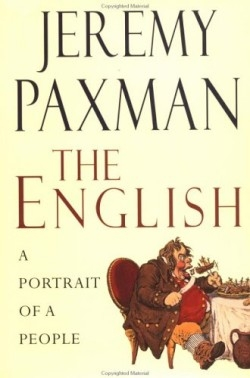
The English
A Portrait of a People
It takes courage to create a “portrait” of a people; national environments and outlooks change so rapidly that a judicious portrait too easily becomes dismissed as merely judgmental. Paxman had the courage to depict his fellow-English, and has provided an historically sound, perceptive, and witty book.
Paxman writes at an uneasy moment in English history. After her heroism in World War II, Britain faced the dual challenge of loss of empire and a diminished role in world affairs. Today, with the new millennium, the always artificial unity of the United Kingdom is visibly fracturing, with varying degrees of devolution/home rule in Scotland, Wales, and Northern Ireland. The English, dominant in numbers and wealth in the United Kingdom, remain divided about full entry into the European Union, with the loss of their civilized but easily mythologized past to a brash, evermore competitive European future.
The strength of Paxman’s evocative yet disturbing portrait derives from his preference for history over myth, for analysis over anecdote. He notes the complex racial descent of the “True Born Englishman” and powerfully dissects the “self-proclaimed superiority” that persuaded the English to early and bloody experiments in empire, conquering and colonizing their island neighbors before moving on with ineffable self-righteousness to “civilize” other continents. He gives needed recognition to the immense contribution that the Scots, with their inborn abilities, make to England’s power and wealth, and emphasizes that Europe’s “funny foreigners” are also much admired and welcomed thinkers, composers, and painters who have greatly enhanced English intellectual and cultural life.
In a particularly telling point Paxman states that England’s rupture with Rome (and with most of Europe) in 1536 and the subsequent destruction of much of England’s Catholic heritage “marked the replacement of the visual by the verbal.” Many who are aware of England’s galaxy of writers are far less aware of her comparative dearth of visual artists and the drag this had on her artistic development compared to most other European nations.
A seasoned reporter, Paxman brings an incisive mind to a myriad of other topics, including pageantry, country house splendor, home-as-castle, intermittent xenophobia, brutal schools, dismal working-class housing, sexual hypocrisy, and peculiarly casual serial killers.
Readers will leave this book with a stronger sense of the Englishman’s liberties, deeper appreciation of the history-shaping force of the English language, and a new awareness of myth-and-mist-ridden England’s capacity to reinvent her past and shape her future.
Reviewed by
Peter Skinner
Disclosure: This article is not an endorsement, but a review. The publisher of this book provided free copies of the book to have their book reviewed by a professional reviewer. No fee was paid by the publisher for this review. Foreword Reviews only recommends books that we love. Foreword Magazine, Inc. is disclosing this in accordance with the Federal Trade Commission’s 16 CFR, Part 255.
